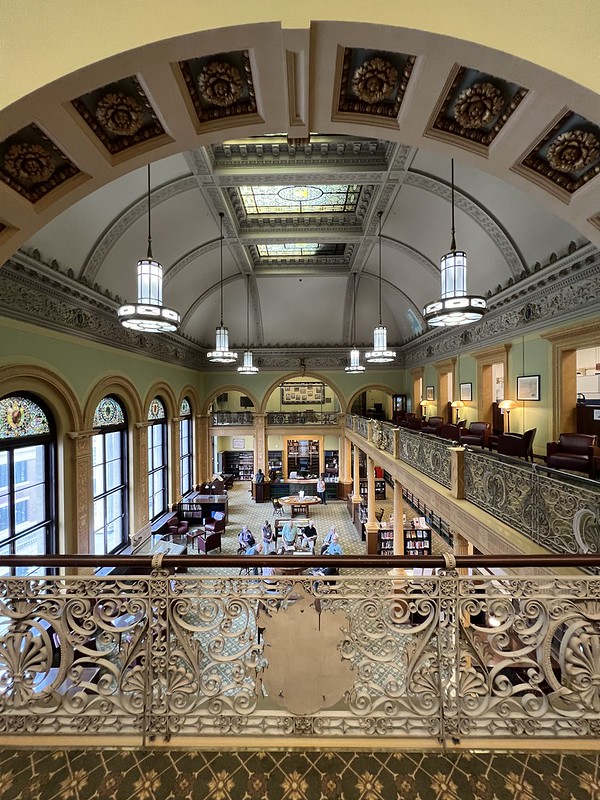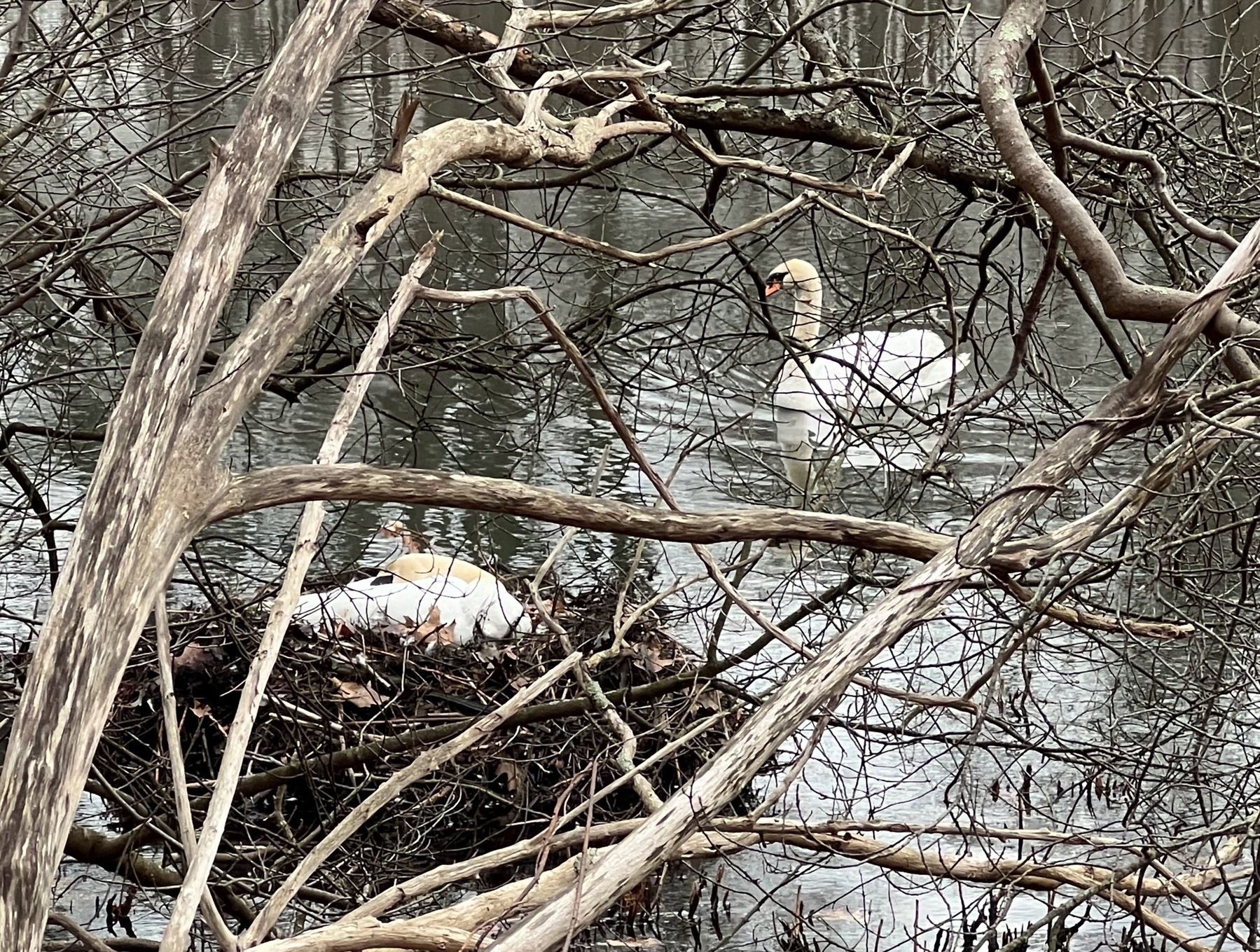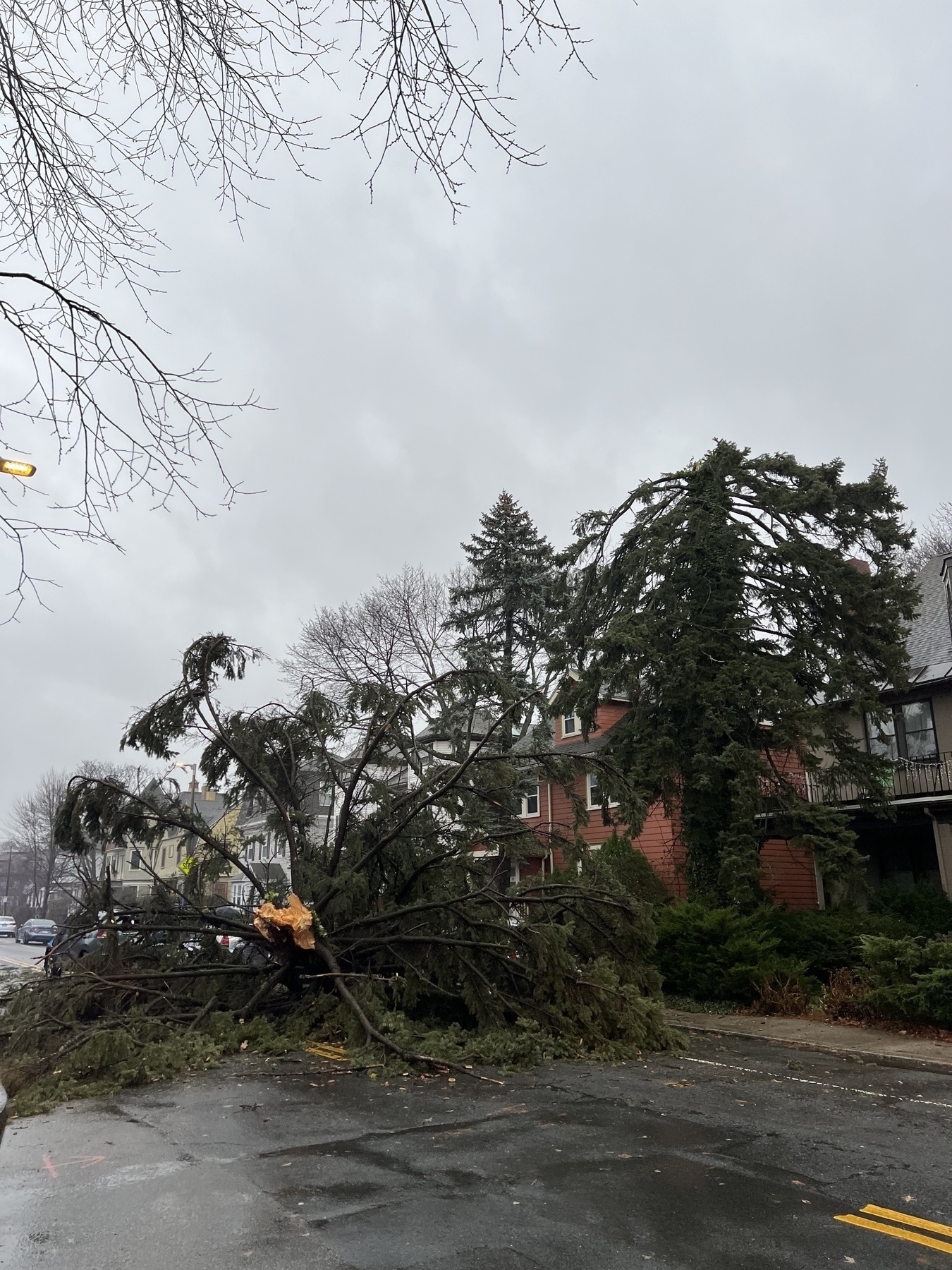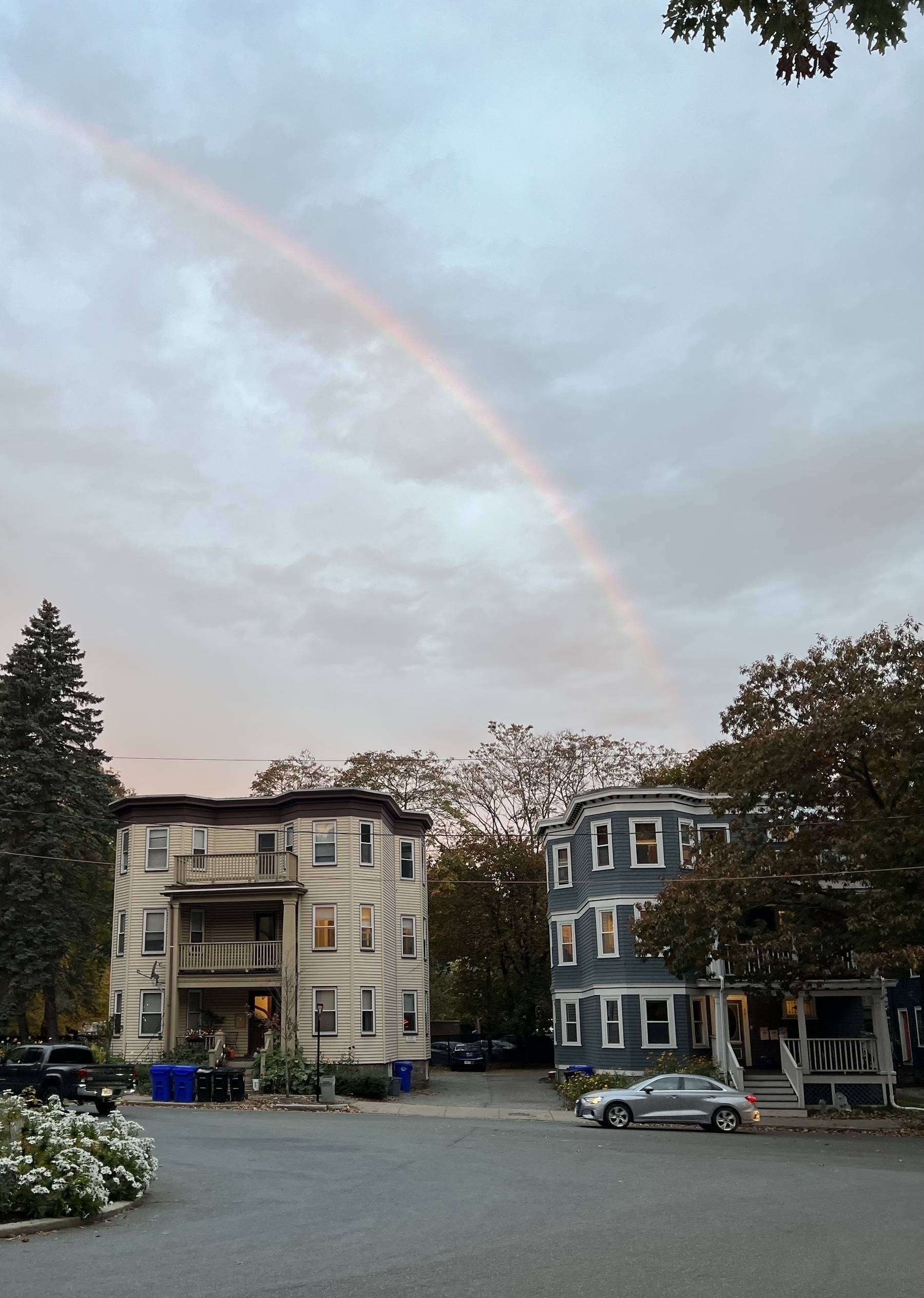The Price
This is a brilliant story, reported in a way that you don’t often see anymore, on a subject that hasn’t gotten much press—the ongoing 1.7 trillion dollar effort to overhaul all three legs of our nuclear arsenal. The New York Times is one of the few news outlets left that could devote the time and resources that it has here, sending reporters to visit submarine shipyards, missile silos, and nuclear warhead manufacturing sites.
Was there ever a moment when we could have achieved nuclear disarmament, or at least gotten closer to it? If so, it has to be one of the greatest tragedies of the past generation that the chance was missed. The resources that we’re pouring into this project, added to those expended by all of the other nuclear powers—Russia, China, France, Israel, India, Pakistan, North Korea, and maybe someday Iran—could have built a different, better planet.
(Yes it’s paywalled, but maybe you should support the news by subscribing?)
Finished reading: North Woods by Daniel Mason 📚 What a strange, beautiful, sprawling novel. One of my favorites reads of this year–I can’t wait to get to work so that I can put it on the “staff picks” display.
Finished reading: Nuclear War by Annie Jacobsen 📚 A perfect read for Gen-Xers looking to get back in touch with the existential anxiety that we felt during the Reagan era. We may spend more time worrying about the climate these days, but the nukes are still out there.
Finished reading: The Ionian Mission by Patrick O’Brian 📚In any long book series, there are some duds among the bangers. This one was draggier than I remembered–O’Brian could have cut about 50 pages of “political intrigue” with no loss. Somewhat redeemed by a terrific concluding sea battle.
Finished reading: Erasure by Percival Everett. 📚 American Fiction was my favorite movie of 2023, so I was eager to read this, the source novel. I enjoyed it just as much as the film and can now better appreciate the skill that it took to translate such a darkly funny and layered work to the screen.
Finished reading: Portal: San Francisco’s Ferry Building and the Reinvention of American Cities by John King 📚 San Francisco is one of my favorite places, and urban history and design among my favorite subjects, so this was right up my alley. An extremely engaging yet very thoughtful read.
This year’s Boston Christmas Tree has a perfect shape. Thanks and a Merry Christmas to you, Nova Scotia! 🇨🇦🇺🇸

Finished reading: Starter Villain by John Scalzi 📚 Scalzi knows how to deliver a diverting, fast-paced, funny story. The class-conscious cetaceans were particularly hilarious.
Finished reading: Post Captain by Patrick O’Brian 📚I’m two books in to my decennial re-reading of the Aubrey/Maturin series, and it is holding up well so far. Only 18 to go!
Short Review: A Hacker's Mind, by Bruce Schneier
Finished reading: A Hacker’s Mind: How the Powerful Bend Society’s Rules and How to Bend Them Back by Bruce Schneier 📚
The author of this book is a cryptography/security expert, so if you glossed over the subtitle, you might expect this to be a look at computer hacking. Instead it’s an examination of “hacking” in a broader sense: Schneier defines it “gaming the system”, or subverting the intent of a social or technical system by subverting its rules or norms. Sometimes a hack can be positive or benign, such as when hockey players first discovered that they could increase the velocity of their shots with curved sticks (a modification not covered in the rulebook). More often, though, hacking is done by powerful people looking to consolidate their power, whether by avoiding taxation via loopholes, or manipulating legislation through obscure amendments, or using AI to spread disinformation or perpetrate fraud.
Schneier is an engaging writer, and at the end of these 60 chapters you will find yourself wondering if there is any system on Earth that can’t, in one way or another, be hacked. I did wish that more time was spent on the promise made in the second half of his subtitle (the How to Bend Them Back part), but as he points out, ending the hacking of our society will be a complex and ongoing process. He ends with a call to create “hacking governance systems” made up of citizens and experts who could act quickly to evaluate (or even anticipate) negative hacks and help blunt their effects through the legal system. But given that no such efforts are happening, he ends on a dark note:
“Unless we can hack the process of hacking itself, keeping its benefits and mitigating its costs and inequities, we may struggle to survive this technological future.”
My verdict: Recommended (if a little bit depressing)
As my birthday week winds down, I’d like to thank Starbucks, Peet’s, Panera, Pavement, and J.P. Licks for the free treats. I was sad to learn that Dunkin’, which had long been good for a free coffee, is now offering “3x birthday points on purchases” instead—a very joyless gift!
Finished reading: American Prometheus by Kai Bird and Martin J. Sherwin 📚I thought that Oppenheimer was overlong, but now, having read the source material, I’m amazed that Christopher Nolan was able to squeeze the story down to three hours. This was quite a tome, but worth the attentional effort.
Recently finished reading: A Paradise Built in Hell, by Rebecca Solnit. 📚 It examines the ways that disasters (like the San Francisco Earthquake, 9/11, or Hurricane Katrina) can temporarily upend the social and economic order, and how these new arrangements might point the way to a more egalitarian future. A very thought-provoking and hopeful book that I’m still pondering, days later.
A visit to a (somewhat) hidden library
Wasn’t making much progress on personal projects today, so I called an audible and decided to visit a place I’d never seen–the Massachusetts State Library. This beautiful space is tucked away at the extreme back end of the State House, on the third floor. It’s not only an information resource for the state legislature (like a mini-Library of Congress), but also an archive of historic Massachusetts documents and materials. The large reading room is available to all visitors whenever the State House is open, and there are display cases situated throughout containing various interesting artifacts. During my visit, there was an original Audubon plate on view, and a reproduction of John Winthrop’s diary. Interesting stuff, and I suspect that I will be coming back to see future exhibits or attend a book talk.
 [More pictures](https://www.flickr.com/photos/ericmaki/albums/72177720310525522)
[More pictures](https://www.flickr.com/photos/ericmaki/albums/72177720310525522)
I’m old enough to remember a time (pre-9/11) when the State House had virtually no security, and one could stroll right in. Today, visitors must pass through a magnetometer and have their bags scanned, but the process is quick and the security guards friendly. Once you’re inside, there is a lot to see, and few areas that are roped off, unless the House or Senate are meeting in a closed session.




